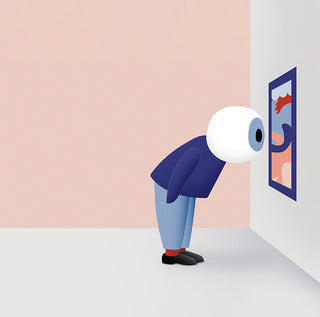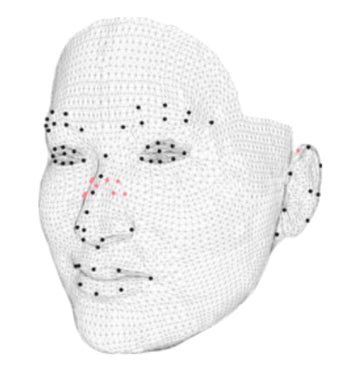
Eye exam
The health of your eyes is our priority. Optometrists are equipped to provide you with the best care.

What is an eye exam?
It's a series of tests performed by optometrists to evaluate your vision, check the health of your eyes, and detect possible eye problems.
Optometrists test your vision, issue prescriptions and check the health of the internal and external structures of the eye. This is essential to ensure that your eyes are healthy and see well.
Reasons to have an eye exam
Assessing your eye health
Optometrists use a variety of tests to check the overall health of your eyes. This is an essential step to ensure that there are no underlying problems that could affect your vision long-term.
Find out how to preserve and improve your vision
Blurred vision? The solution is clear. An eye exam evaluates your visual capacity and determines how you can maintain or improve it, ensuring better visual quality in your everyday life.
Detecting eye health problems
These exams, performed with cutting-edge equipment, can detect early signs of problems that could affect your vision. Early identification of issues such as glaucoma, cataracts, age-related macular degeneration, diabetic retinopathy or dry eyes greatly increases the chances of effective treatment.
Reviewing and adjusting your optical prescription
If you already have vision correction, this is an opportunity to ensure that your prescription is still adapted to your needs, thus avoiding the inconvenience of inadequate vision.
The frequency with which you should have an eye exam varies according to your age and state of health. To find out what your ideal frequency is, read our article.

Included services in an eye exam
An eye exam at New Look is more than just a routine checkup. Using state-of-the-art equipment, the optometrists perform a complete and precise examination, giving you a clear picture of your eye health. Take advantage of the high quality of their services, knowing that the RAMQ may cover certain aspects of this examination. For more information, consult our FAQ.
Central and peripheral vision tests
Central and peripheral vision tests, also known as perimetry, assess your ability to see clearly in your overall visual field. This type of test is crucial for detecting conditions such as glaucoma, which affect peripheral vision before affecting central vision. This test is particularly useful for those who need to have forms filled out for the SAAQ.
Retinal photography
Retinal photographs, also known as retinal imaging, capture detailed images of the inside of your eyes, including the retina, optic nerve and blood vessels. These images are used to detect and monitor eye diseases such as macular degeneration, diabetes or hypertension. This test is essential for in-depth monitoring of your eye health.
3D scan
The 3D scan is an advanced technology that creates a detailed image of your retina and other internal eye structures. This technique is particularly effective in detecting early abnormalities before they are visible using more traditional methods. Thanks to this innovation, we can offer a more precise diagnosis and rigorous follow-up.
Forms
We're also here to help you fill out any forms you may need. Whether it's a general health form or a specific one, such as the SAAQ forms for assessing your ability to drive, we'll guide you every step of the way to make sure everything is in order.
What to expect
Eye assessment
The eye exam is the first step in your examination. It allows our professionals to understand your medical history and current concerns. In addition to evaluating your current vision, this assessment helps us identify any eye conditions that require special attention.
Analysis and testing
During the assessment, a battery of tests is carried out to examine various aspects of your vision and eye health in depth. This includes refraction tests to determine your visual correction, as well as more specific examinations to detect potential eye diseases.
Prescription and recommendations
At the end of your eye exam, your optometrist will provide you with a prescription for glasses or contact lenses, if necessary, as well as personalized recommendations for maintaining or improving your eye health. You'll receive advice tailored to your lifestyle, from blue light protection to customized vision correction options.
Exam duration
The duration of an eye exam varies according to each patient and their eye health conditions, but in general, allow about twenty minutes. This time includes the assessment, tests and discussion with your optometrist about any questions you may have.












